
The Mari-it Wildlife Conservation Park in Barangay Jayubo, Lambunao, Iloilo is home to some critically endangered species in the world, like the Visayan Writhe Hornbill and the Visayan Leopard Cat. Before the pandemic, the rescue park already had problems in funding. With COVID-19 adding in the mix, this problem worsened.
Director Dr. JB Ian Bullo said the park needs at least P50,000 a month to meet the standard food and supplement requirements of the animals it hosts.
Before the pandemic, the park could generate only up to P20,000 a month. This comes from the entrance fees from visitors.
Due to community lockdowns and travel restrictions implemented during the pandemic, the park was temporarily closed. Now, the largest sum the park could raise is a measly P5,000, according to Bullo, who has been serving as the park’s resident veterinarian since 2018.
The 4.3-hectare park, which got its name from the Hiligaynon word “mariit” which means “enchanted,” is situated inside the West Visayas State University – College of Agriculture and Forestry (WVSU-CAF) campus. It is the first conservation, breeding, and rescue park in Panay Island.
Currently, Mari-it is home to 13 (previously 17) Visayan Writhed Hornbill or Dulongan Kalaw, 10 (previously 21) Visayan Tarictic Hornbill or Tirik, 19 (previously 21) Visayan Spotted Deer or Usa Pamitun-on, 10 (previously 13) Visayan Warty Pigs or Baboy Talunon, three Visayan Leopard Cats or Madal; two monkeys, two merons, and two cloud rats.
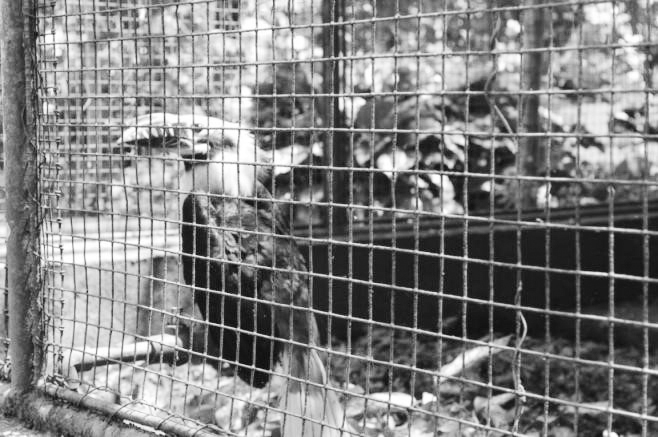
The Visayan Tarictic Hornbill (Penelopides panini) is a hornbill found in the rainforests of Panay, Negros, Masbate, and Guimaras islands. 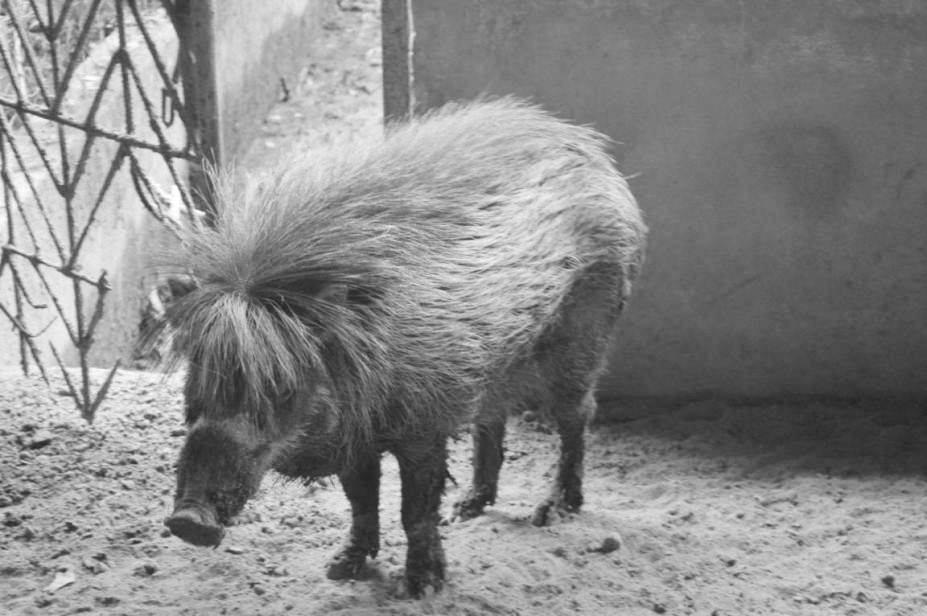
The Visayan Warty Pig (Sus cebifrons) is a critically endangered species of the pig genus due to habitat loss and hunting. It is endemic to six Visayan Islands such as Cebu, Negros, Panay, Masbate, Guimaras, and Siquijor. 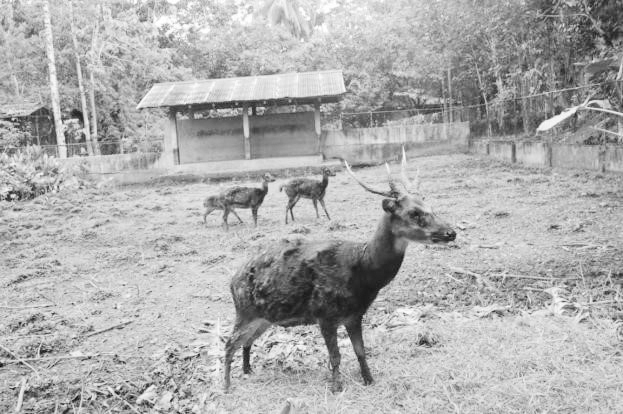
The Visayan Spotted Deer (Rusa alfredi) is a nocturnal and endangered species of deer found primarily in the rainforests of Panay and Negros islands, though it once roamed other islands such as Cebu, Guimaras, Leyte, Masbate, and Samar. It is one of three endemic deer species in the Philippines.
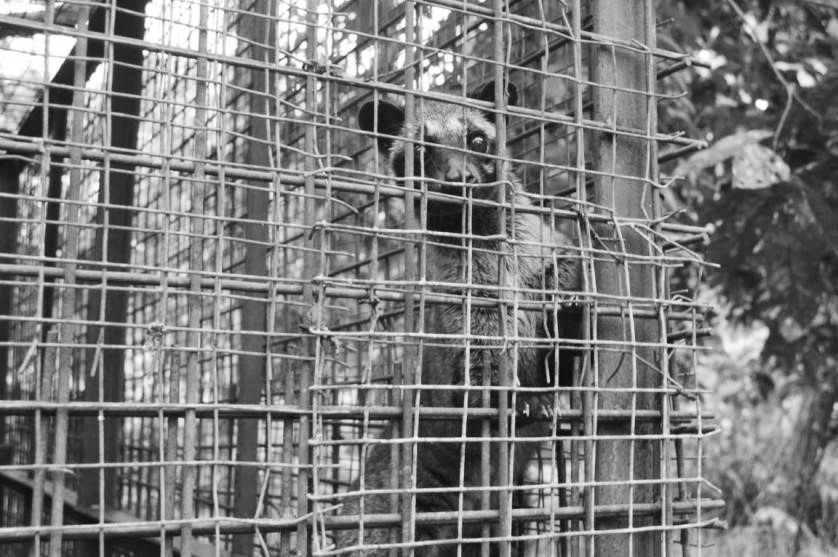
Of these, the most affected species are the Visayan Leopard Cats, which had already lost weight due to “nutrient content imbalance.”
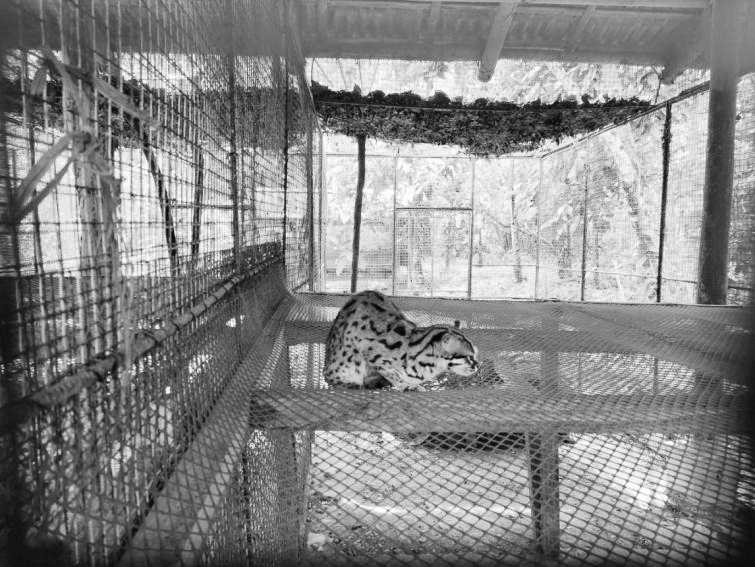
According to Bullo, these Visayan Leopard Cats need to eat one-fourth kilo of chicken a day. Due to the limited funding, the park can only feed them with chicken heads, which only costs P60 per kilo. This cheap alternative cannot sustain the three Visayan Leopard Cats in the long run.
“If we give the leopard cats the volume of food they actually need, all of the park’s funding would go to them. No more will be left to the other animals. We know that this will cause them nutrient content imbalance, but our hands are tied,” lamented Bullo.
The Visayan Writhed Hornbill, which is the second most critically endangered hornbill species in the world, also face the same dilemma. For them to breed, they must be fed with at least three different fruits paired with protein source and vitamins supplements, among others.
Because the park was able to provide them with their standard food requirement last year using the common fund of the university and the local government unit, the Visayan Writhed Hornbills were able to breed another one of their kind. This year, however, the possibility of them breeding again is very unlikely.
“We don’t want to feed them with less than required, but we have no choice. With what we have right now, all we can do it keep them alive as long as possible,” said Bullo.
Bullo, a WVSU-CAF personnel, tends to the park animals with three other members of the technical assistance team employed by the local government unit of Lambunao.
Mari-it is mapped as an ecotourism destination of the town. Previously, it received funding from international animal conservationist groups but it was unfortunately stopped. Now, it is only the local government unit that funds the park’s operating expenses, including the food of the animals.
Bullo said they are currently sending out proposals to private institutions and national government agencies like the Department of Environment and Natural Resources for possible assistance. He added that they are also open for donations./PN



